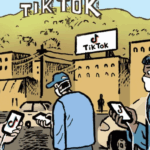Alain Portmann and Oscar Garza will speak about last click attribution at Programmatic IO on April 5 in San Francisco.
Last-click attribution may never die.
Although digital multitouch attribution (MTA) pioneers like Visual IQ, Google’s Adometry and AOL’s Convertro hit the market more than a decade ago, last-click remains the prevailing measurement model.
Big brands and network agencies still tend to prefer media-mix modeling (MMM), said Alain Portmann, founding partner and director of strategy and insights at the performance agency House of Kaizen.
MMM incorporates channels like PR, TV, out-of-home and print, as well as macroeconomic factors that don’t fit squarely into an always-on optimization program, Portmann said. “Digital can’t define attribution for any agency or brand that’s spending the bulk of their budgets offline,” he said, “which is still where most of the revenue is.”
And while marketers have embraced MTA, the C-suite hasn’t.
“A lot of people won’t want MTA because it could easily indicate advertising should go down,” said Oscar Garza, global head of media activation at the WPP digital agency Essence. “You get into the business politics of budgets and headcounts, and people don’t want to undercut their position within the organization.”
For a brand, agency or vendor, “most people’s point of view on attribution is at least somewhat self-serving, simply because a brand’s attribution logic is determinative of budget allocation,” said Sam Appelbaum, senior VP of sales and business development at YellowHammer Media Group.
And, unfortunately, bringing on an MTA solution can end up being counterproductive.
Any time a brand “makes an attribution pivot,” it squanders time and performance by forcing a hard reset on tags and metrics, Appelbaum said.
Implementation is “a tremendous pain point” for many MTA firms, said John Nardone, CEO of the ad server Flashtalking. “Marketers sign up for costly services and they’re frustrated because they aren’t getting insights back in time.”
MTA also has to be part of a broader – and more expensive – effort to clean a brand’s supply chain.
“I’ve seen a lot of marketers adopt and then drop MTA because it wasn’t operable across their business,” Portmann said. “Attribution on its own won’t drive compounded efficiencies or gains, because it’s just the most visible aspect of a broader change that needs to be made.”
Viewability, brand safety, fraud prevention and dynamic creative are distinct categories, often requiring their own point solutions, but are also prerequisites for an effective attribution model, Garza said.
“Are you willing to allocate a higher percentage of your media budget to measurement?” he said. “Are you willing to set aside 5%-10% of your media to do incrementality studies?”
These are tough questions that elicit a “no” from many brand marketers, Garza said, even if they’d prefer MTA to last-click attribution.













